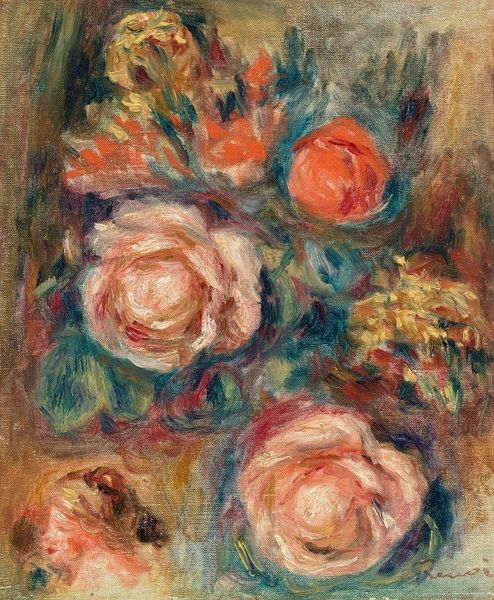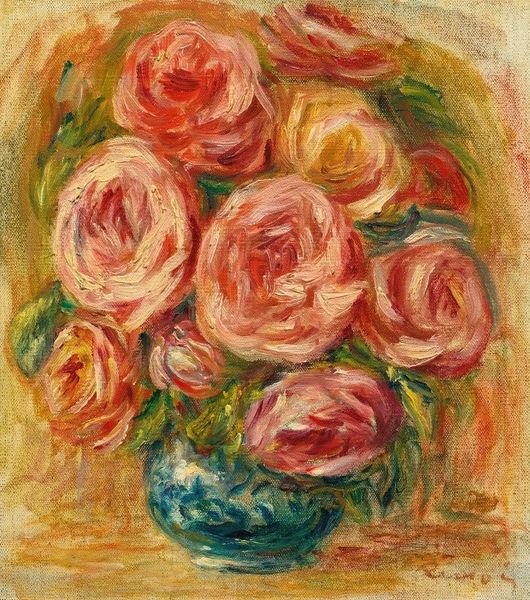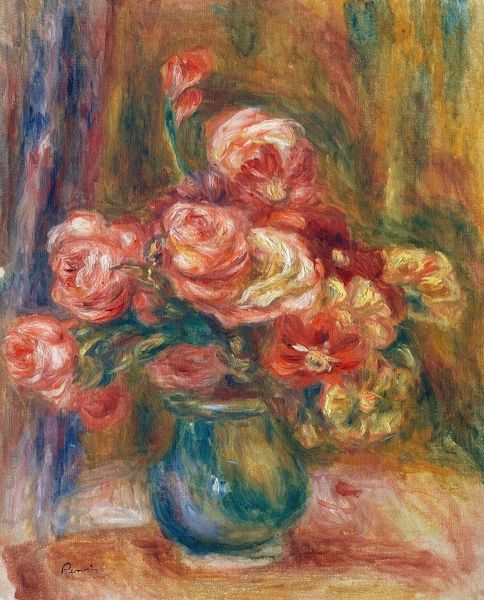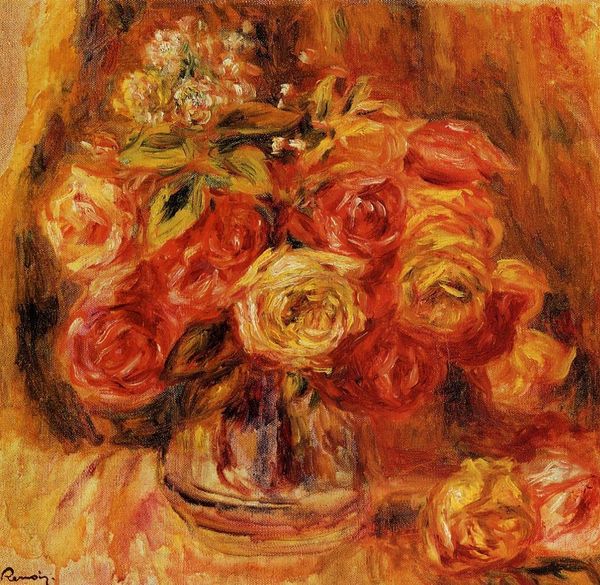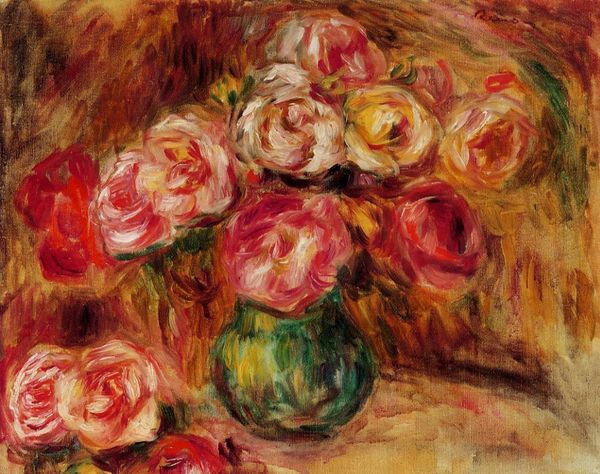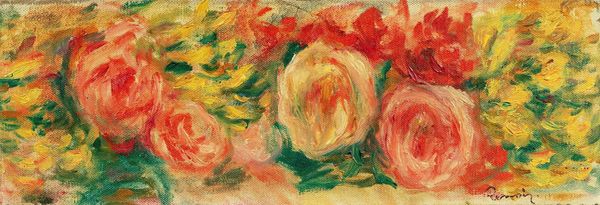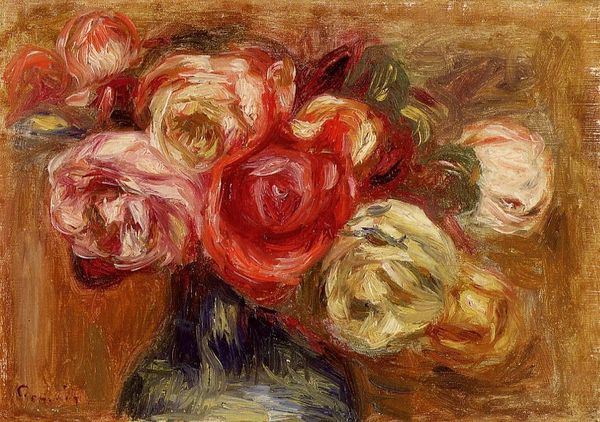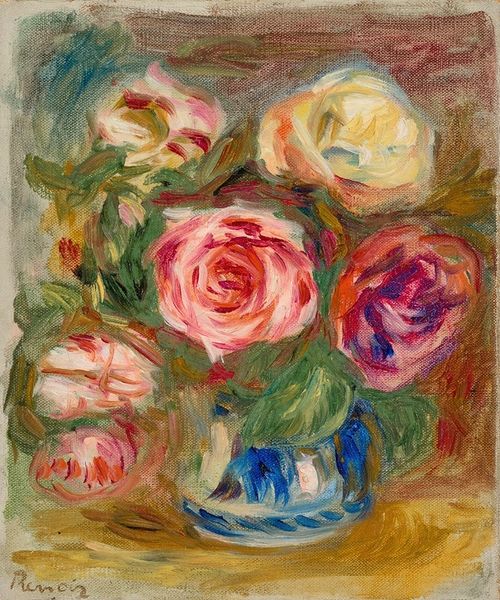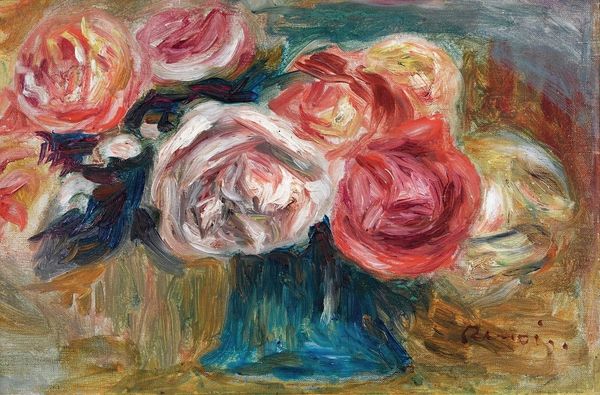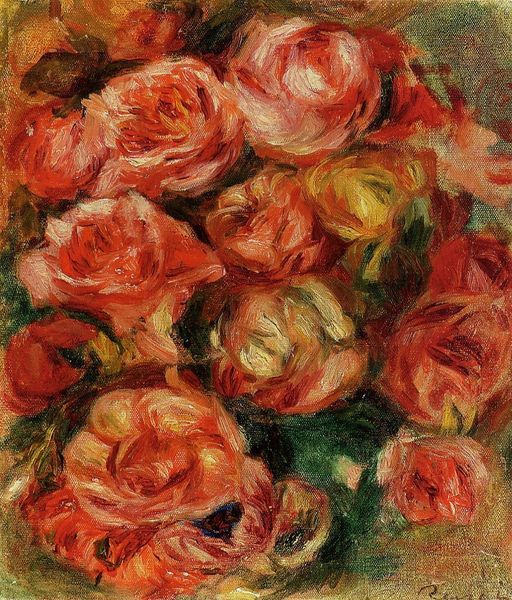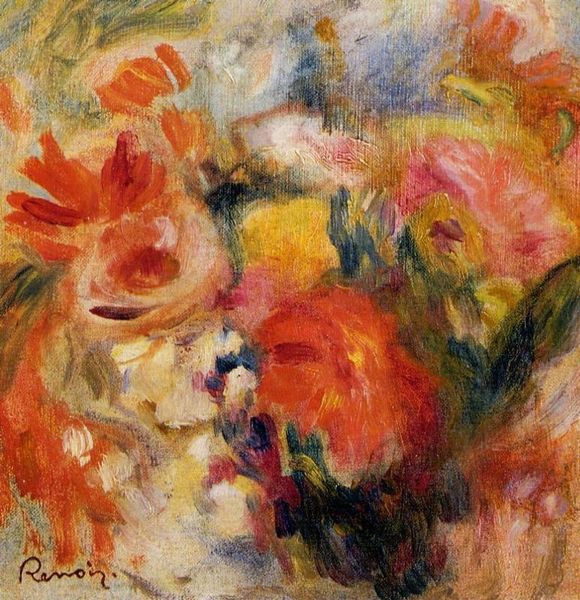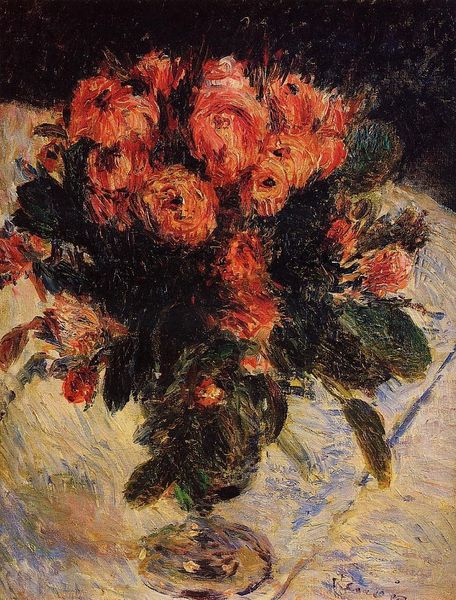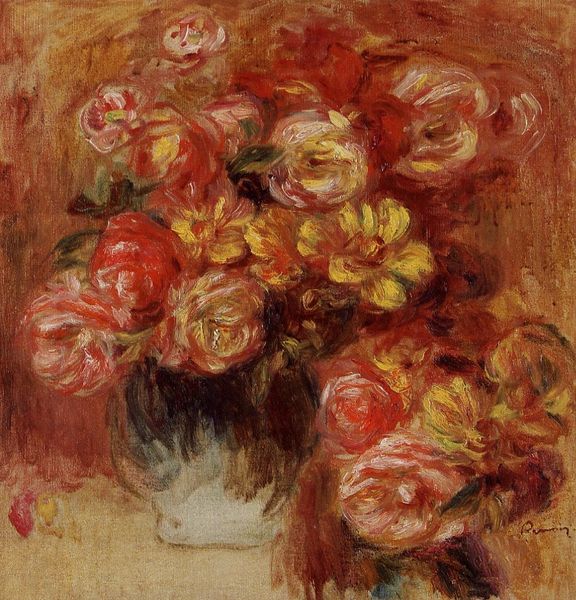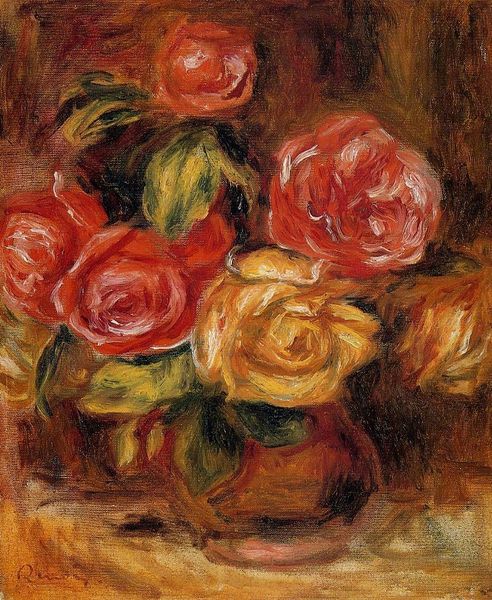
Copyright: Public domain
Pierre-Auguste Renoir, painted 'Flowers' using oil on canvas, a traditional fine art medium. The material itself, oil paint, is a key to understanding the impressionist aesthetic. Ground pigments are suspended in linseed or walnut oil, a binder that allows for a slow drying time. This enabled Renoir to manipulate the paint, creating blurred effects, and capturing the fleeting quality of light and color. Notice how the loose brushwork gives the painting a sense of immediacy, as if Renoir captured the flowers in a single breath. The rise of Impressionism coincided with industrial advancements in paint production. New pigments became readily available, packaged in portable tubes. This democratized access to materials, empowering artists to work en plein air, directly observing nature. The focus shifted from academic precision to subjective experience. Ultimately, Renoir's 'Flowers' invites us to consider not just the beauty of the subject matter, but also the material and social conditions that enabled its creation, blurring the lines between fine art and the everyday world.
Comments
No comments
Be the first to comment and join the conversation on the ultimate creative platform.
